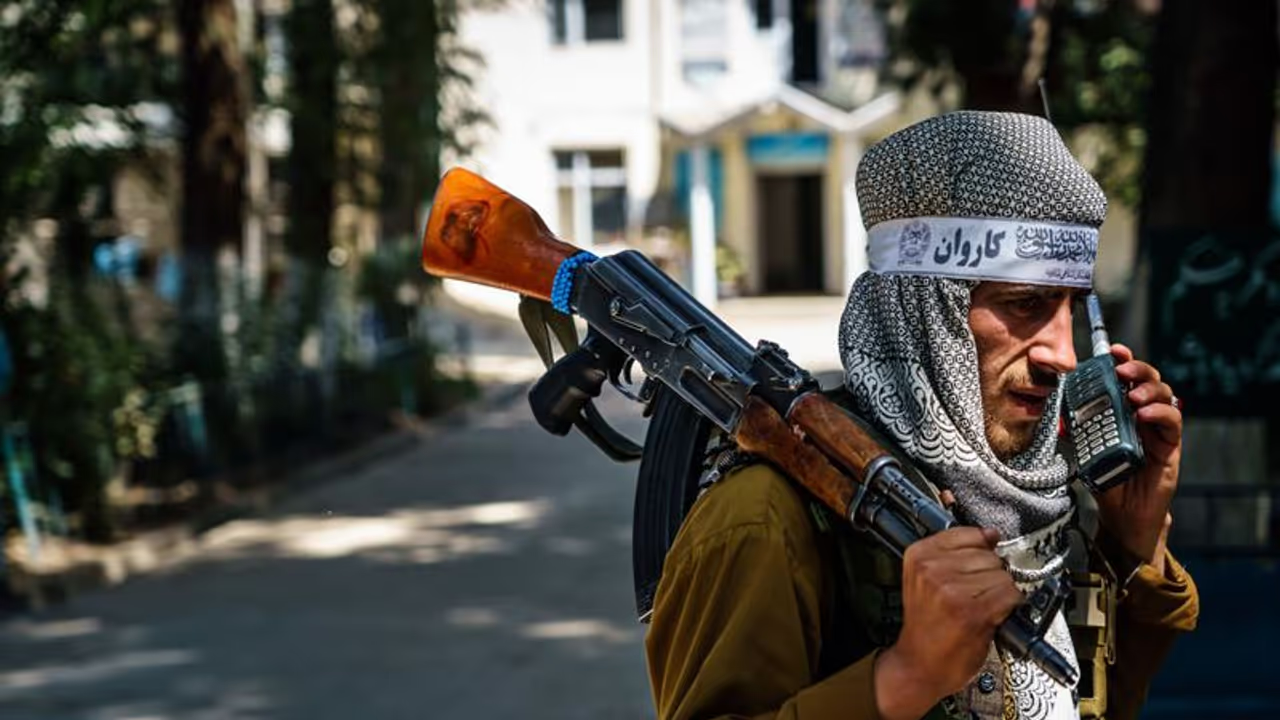Since 2016, Akhundzada has served as the spiritual leader of the Islamist movement, but he has remained a secretive figure, even after his organisation seized control in Afghanistan in August.
Officials on Sunday announced that Taliban supreme leader Haibatullah Akhundzada made his first public appearance, speaking to supporters in the southern Afghan city of Kandahar.
Since 2016, Akhundzada has served as the spiritual leader of the Islamist movement, but he has remained a secretive figure, even after his organisation seized control in Afghanistan in August. His limited profile has fueled suspicion about his involvement in the new Taliban leadership, as well as death rumours.

According to Taliban authorities, he went to the Darul Uloom Hakimah madrassa to "talk to his heroic warriors and disciples," according to Taliban authorities. The event was heavily guarded, and no images or video have surfaced, but Taliban social media channels published a ten-minute audio clip. Akhundzada, also known as "Amirul Momineen" or "commander of the faithful," delivered a religious sermon. The address avoided politics and instead prayed for God's blessing on the Taliban leadership. He prays for the Taliban dead, injured warriors, and the Islamic Emirate's leaders' victory in this "great test."
Also Read | Taliban appreciates Vladimir Putin's statement to remove them from terrorists' list
Following the death of his predecessor, Mullah Akhtar Mansour, in a 2016 US drone assassination, Akhundzada was proclaimed Taliban leader in a quick handover of power.
In other news, as the drought-stricken country faces a cash constraint, mass famine, and a fresh migratory catastrophe, Afghanistan's Taliban administration is demanding the release of billions of dollars in central bank reserves. Afghanistan stashed billions of dollars in assets with the US Federal Reserve and other European central banks. Still, that money has been frozen since the Islamist Taliban overthrew the Western-backed government in August. A finance ministry spokesperson claimed the government will protect human rights, including women's education, as he sought further funding on top of humanitarian help that he described as "little relief." During the Taliban's administration from 1996 to 2001, women were primarily barred from paid jobs and education. They were required to cover their faces and be accompanied by a male relative when they left the house.
Also Read | Afghanistan: WHO hails Taliban’s decision to launch door-to-door polio vaccination campaign
